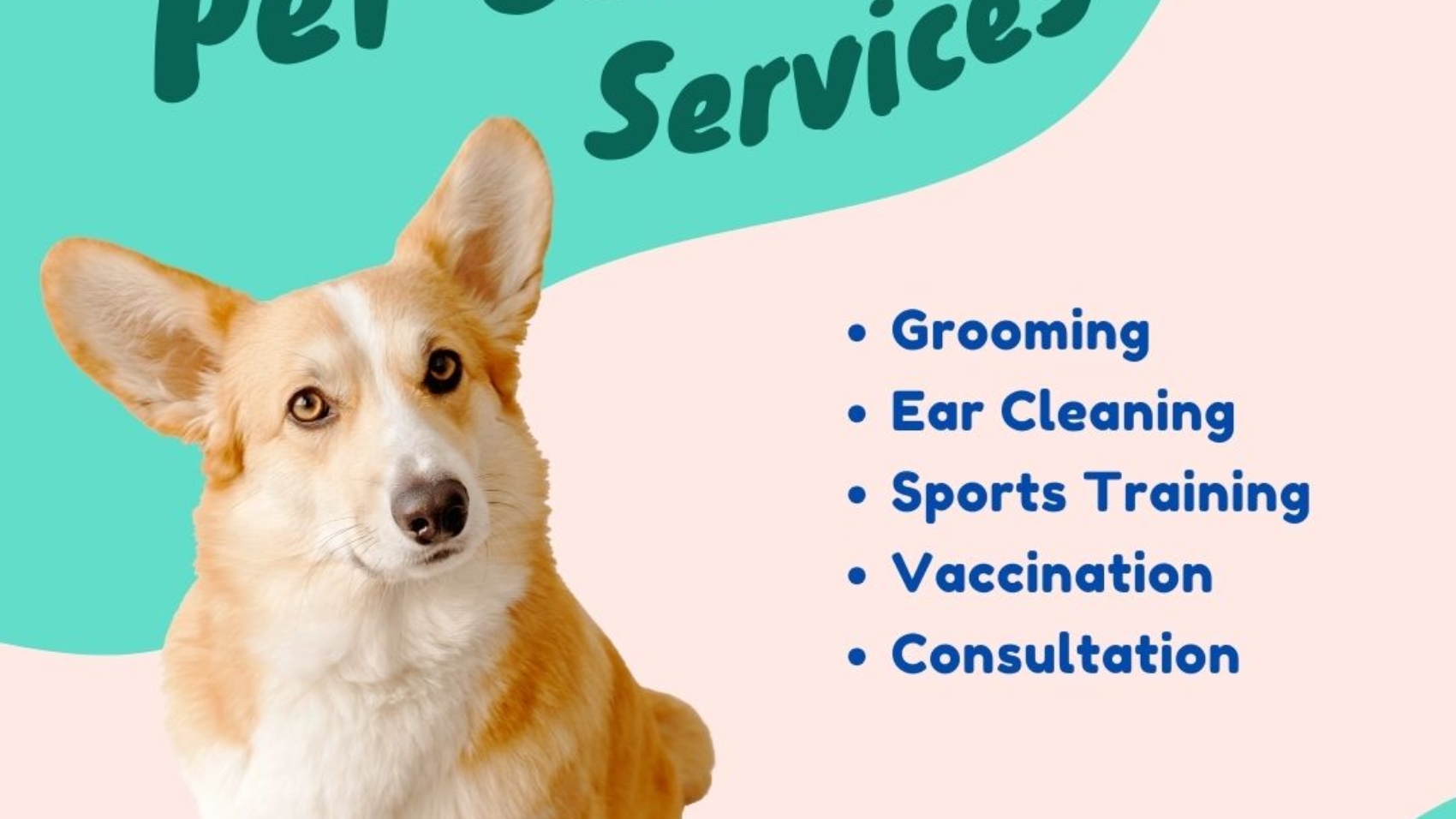Provide some essential tips and guidelines for urgent pet care, how to recognize signs of distress, what to do in case of poisoning or choking.
Introduction:
We all love our pets and consider them to be a part of our family. So, when our furry friends are in need of emergency care, it can be a stressful and overwhelming experience. Knowing what to do in these situations can make all the difference in ensuring the health and safety of our beloved pets. Whether it’s a sudden illness, injury, or any other unexpected emergency, being prepared and knowing how to respond promptly can help save your pet’s life.

- Recognizing Signs of Urgent in Pets
- Common Pet Emergencies and How to Handle Them
- Steps to Take Before Going to the Vet
- Emergency First Aid for Pets
- Tips for Preventing Pet Emergencies
Recognizing Signs of Urgent Pets care
As a pet owner, one of the most important things you can do is to recognize the signs that your furry friend may be in need of urgent pet care. Just like humans, pets can experience medical emergencies that require immediate attention in order to prevent further harm or even save their lives.
One of the most common signs that your pet may be experiencing a medical emergency is difficulty breathing. If your pet is struggling to catch their breath or showing signs of respiratory distress such as wheezing, coughing, or blue-tinged gums, it is crucial to seek help from a veterinarian right away.
Vomiting and diarrhea are also common signs of a medical emergency in pets. While it is not uncommon for pets to have an upset stomach from time to time, persistent vomiting or diarrhea, especially if there is blood in the stool or vomit, could indicate a more serious condition that needs to be addressed by a veterinarian.
Seizures are another alarming sign that your pet may be in need of urgent pet care. If your pet experiences a seizure for the first time or has multiple seizures in a short period of time, it is important to seek help from a veterinarian as soon as possible to determine the underlying cause and provide appropriate treatment.
Physical trauma such as being hit by a car, falling from a height, or being attacked by another animal can result in serious injuries that require immediate medical attention. If your pet is bleeding, has difficulty standing or walking, or is showing signs of severe pain, it is crucial to seek help from a veterinarian right away. If your pet ingests a toxic substance such as chocolate, xylitol, grapes or raisins, medications, or household cleaners, it is important to seek emergency care immediately. Time is of the essence when it comes to poisoning, and prompt treatment can make a significant difference in the outcome for your pet.
Common urgent pet care and How to Handle Them

As a pet owner, it is important to be prepared for any potential emergencies that may arise with your furry friends. Knowing how to handle common urgent pet care can make all the difference in ensuring your pet receives the care they need in a timely manner.
One common urgent pet care that many pet owners may face is choking. If your pet is choking, they may display signs such as difficulty breathing, coughing, pawing at their mouth, or gagging. In this situation, it is important to remain calm and try to remove the object causing the choking if possible. You can perform the Heimlich maneuver on your pet by applying quick upward pressure to their abdomen just below the rib cage. If your pet is still struggling to breathe, it is crucial to seek immediate veterinary care.
Another common pet emergency is poisoning. Pets can be exposed to a variety of toxins in their environment, whether it be from household chemicals, plants, foods, or medications. If you suspect your pet has been poisoned, it is essential to contact your veterinarian or a pet poison control hotline immediately. Do not attempt to induce vomiting unless instructed to do so by a professional, as it could potentially worsen the situation.
Injuries such as wounds, lacerations, or fractures are also common pet emergencies that may require immediate attention. If our pet has a wound that is bleeding heavily, it is important to apply pressure to the area with a clean cloth or bandage to control the bleeding. For fractures, it is crucial to stabilize the injured limb to prevent further damage and transport your pet to the veterinarian as soon as possible.
Seizures can be frightening for both pets and owners. If your pet experiences a seizure, it is important to stay calm and clear the area around them to prevent injury. Do not try to restrain your pet during a seizure, as this could potentially harm them. Keep track of the duration of the seizure and any other symptoms your pet may be experiencing, as this information will be
Urgent pet care Steps to Take Before Going to the Vet
When your pet is in need of emergency care, it can be a stressful and frightening experience. However, there are some steps you can take before rushing to the vet that can help make the situation a little less chaotic.
First and foremost, it is important to stay calm. Your pet can sense your emotions, and they will likely be frightened themselves. Take a deep breath and try to assess the situation as calmly as possible. This will help you make better decisions and provide the best possible care for your pet.

Next, assess your pet’s condition. Do they seem to be in pain? Are they bleeding? Are they having trouble breathing? These are all important factors to consider when deciding how quickly your pet needs to see a vet. If your pet’s condition seems serious or life-threatening, it is best to seek immediate medical attention.
If your pet is injured, it is important to handle them carefully. Even the most gentle pets can become agitated when they are in pain. Approach them slowly and speak to them in a soothing voice. If possible, try to stabilize their injury by gently wrapping it with a clean towel or bandage.
In some cases, you may be able to provide some basic first aid for your pet before heading to the vet. For example, if your pet is bleeding, you can apply pressure to the wound with a clean cloth to help stop the bleeding. If your pet is choking, you can try to carefully remove the object blocking their airway.
If possible, try to contact your regular vet or an urgent pet care clinic before you arrive. This can give them a heads up that you are on your way and allow them to prepare for your arrival. They may also be able to provide you with additional advice on how to care for your pet in the meantime.
Finally, make sure you have a plan for getting your pet safely to the vet. If your pet is too large or injured to move on their own, you may need to enlist the help of a friend or neighbor to assist you. If your pet is in a small carrier or crate, make sure it is secure and well-ventilated for the journey.
Taking these steps before heading to the vet can help ensure that your pet receives the best possible care in a timely manner. Remember, it is always better to be safe than sorry when it comes to your beloved furry friend’s health and well-being.
Urgent First Aid for Pets

Our pets are a part of our family, so it’s essential to know how to provide emergency first aid if they need help fast. In a moment of crisis, it’s crucial to stay calm and act quickly to ensure the best possible outcome for your furry friend.
One of the first things you should do in an urgent pet care is to assess the situation. Is your pet conscious and breathing? Are they bleeding heavily or in severe pain? These are all critical factors to consider when providing first aid. If your pet is unconscious or having difficulty breathing, it’s essential to check their airway and ensure it is clear. You may need to perform CPR or rescue breathing if necessary.
If your pet is bleeding heavily, apply pressure to the wound with a clean cloth or bandage to help stop the bleeding. Elevating the wound above the heart can also help reduce blood flow. Remember to stay calm and keep your pet as still as possible to prevent further injury.
In the case of poisoning, it’s crucial to act quickly. If you suspect your pet has ingested something toxic, contact your veterinarian or a pet poison helpline immediately. They will be able to provide guidance on how to best help your pet in this situation.
If your pet is having a seizure, it’s essential to keep them safe and comfortable. Remove any objects that could harm them during the seizure and speak softly to help reassure them. Time the seizure, as this information will be helpful for your veterinarian in determining the best course of treatment.
For heatstroke, it’s essential to cool your pet down gradually. Move them to a cool, shaded area and apply cool water to their fur (not cold water, as this can shock their system). Offer small amounts of water to drink and seek immediate veterinary care.
In the event of a broken bone, it’s crucial to immobilize the injury to prevent further damage. You can use a makeshift splint with a towel or bandage to support the affected area. Be sure to handle your pet gently and get them to a veterinarian as soon as possible.
When dealing with a possible eye injury, it’s essential to keep your pet from rubbing or scratching at their eye. Rinse the eye gently with saline solution or clean water to help flush out any debris. Seek veterinary care promptly to prevent any further damage to the eye.
Tips for Preventing urgent pet care
Pet emergencies can be stressful and frightening experiences for both you and your furry friend. However, there are steps you can take to help prevent these situations from occurring in the first place. By being proactive and taking certain precautions, you can greatly reduce the likelihood of your pet needing emergency care.
One of the most important things you can do to prevent pet emergencies is to keep up with regular veterinary check-ups. By taking your pet to the vet for routine exams and vaccinations, you can catch any potential health issues early on before they become emergencies. Your vet can also provide you with valuable information on how to care for your pet and keep them healthy.
Another crucial aspect of preventing emergencies is maintaining a healthy diet and weight for your pet. Obesity in pets can lead to a myriad of health problems, including diabetes, arthritis, and heart disease. By feeding your pet a balanced diet and ensuring they get enough exercise, you can help prevent these issues from arising.
Keeping your pet safe and secure is also essential in preventing emergencies. Make sure your pet is always wearing a collar with identification tags, and consider getting them microchipped as an extra precaution. Additionally, ensure that your home is pet-proofed, with no hazardous items within reach and no potential escape routes.
Regular grooming is another important aspect of preventing emergencies. Brushing your pet’s fur regularly can help prevent mats and tangles that could lead to skin irritations or other health issues. Keeping your pet’s nails trimmed can also prevent them from getting caught on things and causing injury.
Lastly, it’s important to monitor your pet’s behavior and health closely. Be on the lookout for any changes in appetite, bathroom habits, energy levels, or behavior. If you notice anything unusual, don’t hesitate to contact your vet for advice. Early detection of health issues can often prevent them from escalating into emergencies.
By following these tips and being proactive in caring for your pet, you can significantly reduce the risk of them needing emergency care. Remember, it’s always better to be safe than sorry when it comes to your furry friend’s health and well-being.
What is Urgent Pet Care?
Urgent Pet Care is a specialized veterinary service that provides immediate medical attention to pets in emergency situations outside of regular clinic hours. It offers prompt and expert care for pets facing urgent medical issues when their regular veterinarian is unavailable.
When should I seek urgent pet care?
Urgent Pet Care should be sought when your pet experiences sudden or severe health issues that require immediate attention. This includes symptoms such as difficulty breathing, severe injuries, ingestion of toxic substances, or any other situation where delay could jeopardize your pet’s health.
How do I find an Urgent Pet Care facility?
You can locate Urgent Pet Care facilities in your area by researching online, asking your regular veterinarian for recommendations, or checking with local animal shelters. It’s essential to have the contact information for an Urgent Pet Care provider readily available in case of emergencies.
What services does Urgent Pet Care offer?
Urgent Pet Care facilities are equipped to handle a wide range of medical emergencies, including trauma care, poison ingestion, respiratory distress, and more. They typically have on-site diagnostic equipment, such as X-ray and ultrasound machines, to quickly assess and treat your pet’s condition.
Is Urgent Pet Care more expensive than regular veterinary care?
While the cost of Urgent Pet Care may be slightly higher than a routine veterinary visit, the focus is on providing immediate medical attention to pets in critical situations. The fees are generally reflective of the urgent nature of the service and the specialized care required to stabilize and treat your pet’s condition. It’s important to prioritize your pet’s health and seek timely care regardless of cost considerations.
Conclusion:
Having a plan in place for urgent pet care is essential for keeping your furry friend safe and healthy. By knowing the signs of a pet emergency, having important contact information readily available, and staying calm under pressure, you can be prepared to act quickly and effectively when your pet needs help fast. Remember, it’s always better to be safe than sorry when it comes to your beloved pet’s well-being.

Leave A Comment